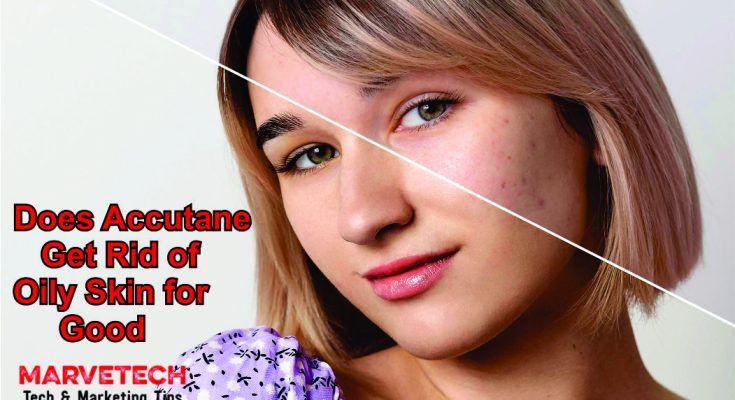Dealing with oily skin can be a persistent struggle for many individuals. From frequent breakouts to the perpetual shine, it’s a condition that can significantly impact self-confidence and overall well-being. If you are looking for a genuine acne cure then you can try isotretinoin 40 mg.
While various skincare products and treatments offer temporary relief, one solution that often comes up in conversations is Accutane. But does Accutane have the power to rid oily skin for good?
What is Accutane?
Accutane, also known by its generic name isotretinoin, is a potent oral medication primarily used to treat severe acne. It belongs to a class of drugs called retinoids, which are derived from vitamin A.
Accutane works by reducing the size of oil glands in the skin and decreasing the amount of oil produced. In addition to treating acne, Accutane has been found to have other positive effects on the skin, including reducing pore size and improving skin texture.
The Impact of Accutane on Oily Skin:
For many individuals struggling with oily skin, Accutane can be a game-changer. During the course of treatment, which typically lasts several months, patients often experience a significant reduction in oiliness.The once constant battle with shine and greasiness gradually diminishes, leading to clearer, less oily skin.
But what sets Accutane apart from other treatments is its potential for long-term results. While some skincare products may offer temporary relief from oily skin, Accutane addresses the root cause by shrinking the oil glands themselves. This fundamental change in the skin’s structure can lead to a lasting reduction in oil production, even after completing the course of Accutane.
Understanding the Potential for Permanent Results:
While Accutane has the potential to permanently reduce oily skin for many individuals, it’s essential to approach this notion with a realistic perspective. Results can vary from person to person, and not everyone will experience the same level of long-term improvement.
Several Factors Can Influence The Effectiveness of Accutane in Reducing Oily Skin Permanently:
1. Severity of Acne: Accutane is typically prescribed for severe or treatment-resistant acne. In individuals with milder forms of acne or less pronounced oily skin, the effects of Accutane may be less pronounced or not permanent.
2. Genetics: Genetic factors play a significant role in determining an individual’s skin type and oil production. While Accutane can effectively reduce oiliness, genetic predispositions may influence the extent to which these changes are maintained over time.
3. Hormonal Factors: Hormonal fluctuations can impact oil production in the skin. In some cases, hormonal imbalances may contribute to persistent oily skin even after Accutane treatment. Addressing underlying hormonal issues may be necessary for achieving long-term results.
4. Skincare Habits: Following a consistent skincare routine tailored to your skin type is essential for maintaining the results of treatment. Using non-comedogenic products and avoiding harsh or drying ingredients can help preserve the balance of the skin’s oil levels.
5. Lifestyle Factors: Certain lifestyle factors, such as diet, stress levels, and environmental exposure, can influence the skin’s oiliness. Making healthy lifestyle choices and practicing stress-management techniques can support the long-term effectiveness of Accutane in reducing oily skin.
Side Effects:
While Accutane can be highly effective, it’s important to be aware of potential side effects, which can range from dryness and irritation to more serious issues like mood changes and birth defects if used during pregnancy. Regular monitoring by a healthcare provider is essential to manage and minimize any potential side effects.
Maintenance:
Even if Accutane successfully reduces oily skin during treatment, some individuals may experience a gradual return of oiliness over time. Incorporating maintenance strategies such as topical treatments, oil-absorbing products, and periodic follow-up visits with a dermatologist can help sustain the results achieved with Accutane.
Combination Therapies:
In some cases, combining Accutane with other treatments such as topical retinoids, oral contraceptives (for females), or procedures like chemical peels or laser therapy may enhance the overall effectiveness of oily skin management and prolong the results of treatment.
Sun Protection:
Accutane can make the skin more sensitive to sunlight, increasing the risk of sunburn and damage. It’s crucial to use sunscreen daily and limit sun exposure, especially during peak hours, to protect the skin and maintain its health and appearance.
Psychological Impact:
Beyond its physical effects, oily skin can also take a toll on one’s mental and emotional well-being, contributing to feelings of self-consciousness and insecurity. Addressing oily skin with effective treatments can not only improve the skin’s appearance but also boost confidence and overall quality of life.
Consultation and Monitoring:
Before starting Accutane, it’s essential to consult with a dermatologist or healthcare provider who can evaluate your skin condition, medical history, and potential risk factors. Throughout the course of treatment, regular check-ups and monitoring are necessary to assess progress, manage side effects, and ensure safety.
Conclusion:
In conclusion, holds promise as a treatment for reducing oily skin, with the potential for long-term results in many individuals.By targeting the root cause of excess oil production and fundamentally altering the skin’s structure, Accutane can provide significant relief from oily skin and associated concerns.However, it’s essential to approach treatment with realistic expectations and under the guidance of a qualified healthcare professional. With proper care and attention to skincare habits, Accutane can offer lasting benefits for those struggling with oily skin, helping them achieve clearer, more balanced skin in the long run.




